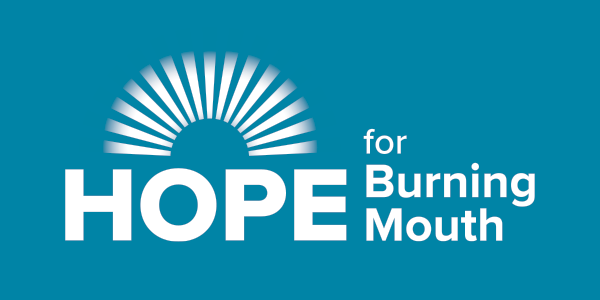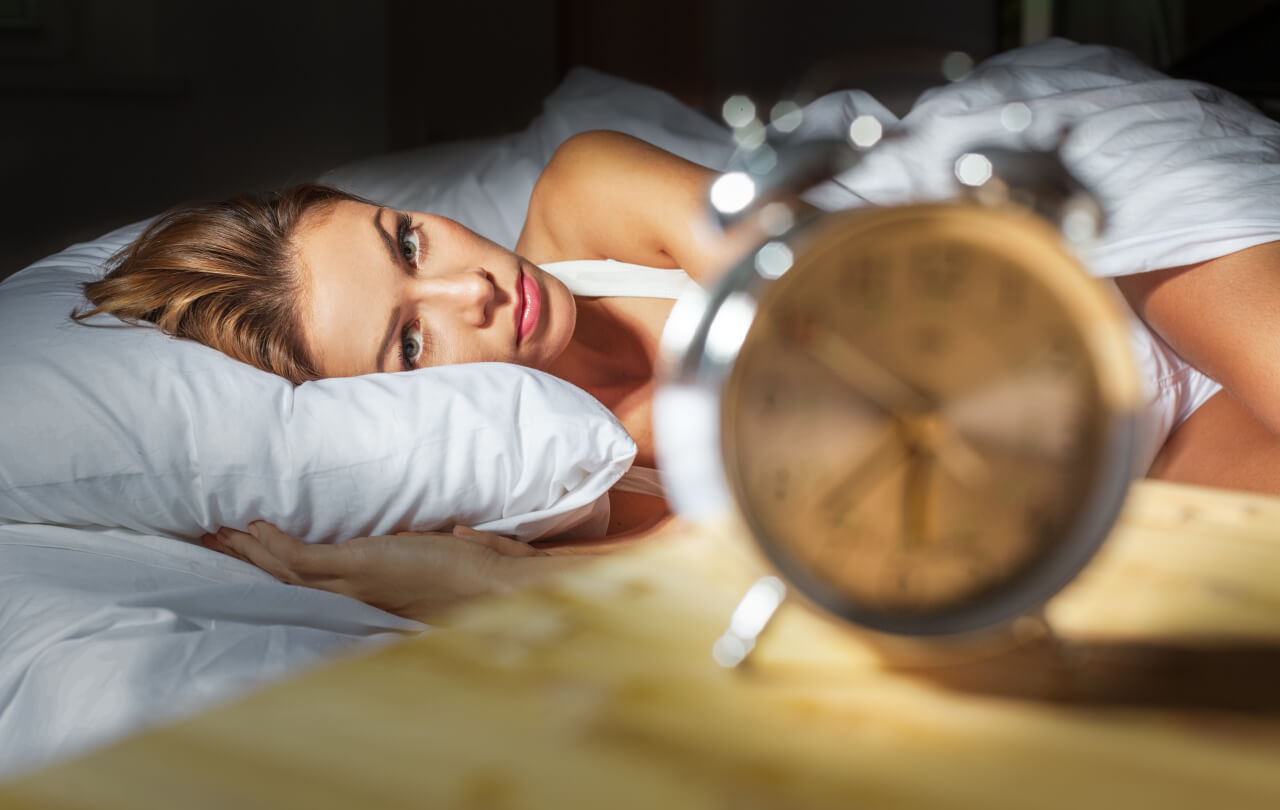Sleep Deprivation and Weight Gain: What’s the Link?
We have seen a major societal shift in sleep patterns over the past several years, which seems to parallel increases in obesity rates. Around 7 in 10 adults get less than eight hours[1] of sleep a night on an average weeknight. If you’re one of them, it could help explain what you’re seeing on your scale.
How Does Poor Sleep Contribute to Obesity?
Do you struggle to convince yourself to go to sleep at night? Are there too many days when you burn the candle at both ends, assuming that you’ll be able to catch up on sleep “eventually” or “over the weekend”? Not only does poor sleep have a significant impact on your overall health, it could also be to blame for that increase in your weight.
Adults who sleep, on average, less than seven hours a night have a greater chance of being obese[2] than adults who get between seven and eight hours of sleep each night. Why? Part of the problem is that you tend to eat more when you’re short on sleep, but you don’t expend extra calories to make up for it. Also, when you’re short on sleep, the hormones responsible for controlling hunger (leptin, the satiety hormone and ghrelin, the hunger hormone) are unbalanced. This makes you hungrier and less full. If you don’t get enough sleep, therefore, you’re more likely to overeat–and more likely to reach for high-fat, high-carb foods.
As a woman, you may struggle significantly more than a man with the impact of those sleepless nights. Women need more sleep than men[3] because they use their brains more than men. However, they may be more likely to skimp on adequate sleep. In turn, they’re more likely to overeat — and therefore more likely to be obese. The statistics show that more women are obese than men. Sleep likely plays a role.
Shift Work and Obesity: When You Sleep Matters
Laura decided years ago that working night shift was the best choice for her family. She can sleep during the day while the kids are at school, work when they’re asleep, and be there for all those important events in their lives. There’s just one problem: she’s constantly hungry, whether she’s at work or at home. Not only that, she craves sugar and carbs, constantly using them to help boost her energy — especially when she’s missed a little extra sleep due to an important work deadline or an event with her kids that she just couldn’t miss.
Her weight has been creeping up for years. She tries to diet and makes sure to fit in exercise regularly. Her family is busy, with lots of activities going on regularly. Unfortunately, the weight just isn’t coming off.
Getting adequate sleep isn’t the only important factor in staving off the risk of obesity–and Laura’s night shift schedule could be to blame for her weight gain. Your body exists on a daily schedule and rhythm. On a normal circadian rhythm[4], that is, the schedule your body naturally falls into–you should be asleep at night.
Your body thinks it should be sleeping, not trying to process food. Your hunger cues are out of alignment. When you do eat, your body can’t process that food as well as it would during daylight hours. That makes your body more likely to store extra calories as fat.
Unfortunately, today’s “always on” society has increased the number of people who must work night shifts–and even working the second shift can set your internal clock “off” and make it difficult to process calories the way you optimally should.
The Challenges of Technology and Sleep: Your Cell Phone Could Be Sabotaging Your Weight Loss
We’ve all done it: staring at a screen long after the time when we were supposed to be in bed at night. By 2009, nine out of ten Americans reported using some type of technology[5] before bed. Maybe you’re used to flipping on the television and staring at it for a few hours before you fall asleep. Maybe you’ve gotten in the habit of scrolling through your phone while you wait for your partner to come to bed. Technology is great for distraction and entertainment, but it’s not great for proper sleep.
Many people blame the blue light[6] produced by electronic devices for causing sleep disturbances: it delays the production of natural melatonin in the body, makes people more alert, and tends to shift the body’s natural circadian rhythm a bit later — a real challenge when you need to wake up early the next morning. Blue light is enough of a problem. Using your technology — especially if you’re actively engaged in whatever you’re doing, like when you’re posting to social media or playing a video game — can give you that extra jolt of mental awareness and sharpness that keeps you up long past your bedtime.
The Hormones Released During Sleep Affect Your Weight Loss Efforts
During the deepest sleep of the night — when you’re not dreaming or in that light state of sleep where anything can wake you — your body is producing the hormones that help control your hunger and your weight loss. During deep sleep, your brain waves slow down and your body focuses on repairing itself — and on generating the hormones you need to control your weight.
Cortisol: The Fat Storage Hormone
High cortisol levels[7] can cause a host of problems:
- Difficulty breaking down fat for energy
- Greater likelihood of breaking down muscle instead of fat to produce the energy your body needs
- Higher levels of hunger (and more cravings for those foods you know you should eat in moderation)
Cortisol is supposed to decrease during sleep. If you’re not getting the right amount of sleep, your cortisol levels rise. You may have heard that high cortisol levels can contribute to high levels of belly fat, which is true. In addition, high cortisol levels can actually contribute to overall fat gain and muscle loss, not to mention more difficulties controlling your cravings.
Growth Hormone Helps You Reach Your Goals
The growth hormone[8] produced by adults is the same hormone that helps kids grow. In adults, however, it is a healing hormone as well as maintaining muscle mass and decreasing fat mass. It’s the hormone that helps develop your muscles after a workout while decreasing those fat stores. Your body produces some growth hormone while exercising but your body makes most of your growth hormone during deep sleep. So, if you short yourself on sleep, you may see decreased muscle mass, increased fat mass, and difficulty recovering after a tough workout.
Hormone Release During REM Sleep: Dreaming of Weight Loss Success
Like deep sleep, hormone release during REM sleep (the period of “rapid eye motion” sleep when you’re dreaming) can make a big difference in your ability to reach those weight loss goals.
Testosterone: It’s Not Just About Male Sex Drive!
During sleep, levels of nocturnal testosterone[9] rise. When you wake up, they start to fall again. For most people, peak testosterone levels happen during REM sleep. Not only is adequate sleep critical for sexual health, but it could also help both men and women reach their weight loss goals. Testosterone is widely and misleadingly understood to be the “male” hormone. Many experts now believe that it’s the loss of testosterone, and not estrogen, that causes women in midlife[10] to tend to gain weight, feel fatigue and lose mental focus, bone density and muscle tone — as well as their libido.
Leptin and Ghrelin: The Hunger Hormones
One of the most important elements of REM sleep is your body’s production of leptin and ghrelin[11]: the hunger hormones.
Leptin is the satiety hormone. When you have steady levels of leptin in your blood, you’re more likely to feel satisfied and less likely to feel hungry. This means you’re less likely to overeat, even if you aren’t actively counting calories. Basically, leptin is your internal portion control–and this important little hormone is produced most often in REM sleep.
Ghrelin, on the other hand, is the hunger hormone. When ghrelin levels are high, you’ll be more hungry and struggle to control your eating. You might reach for larger portions of your favorite foods or indulge in treats you could normally walk on by. Ghrelin is a hormone produced and released mainly by the stomach with small amounts also released by the small intestine, pancreas, and brain. Ghrelin has numerous functions. It is called the ‘hunger hormone’ because it stimulates appetite, increases food intake and promotes fat storage. With sleep deprivation, ghrelin production goes up, which drives you to eat more.
Insulin: Controlling Energy, Fat Loss, and More
With just four days of sleep deprivation[12], your body starts to lose its ability to properly respond to insulin signals. Lack of responsiveness to insulin can cause several key problems:
- Fat cells are less likely to release fatty acids and lipids to produce energy. This interferes with insulin action
- Blood glucose levels are higher
- Extra fats and sugars circulating in your blood cause you produce more insulin, which keeps the vicious cycle going
- You’ll start to store fat–often in all the wrong places, including in your liver, creating fattyliver
Sleep Deprivation and Frontal Lobe Function: Stripping Away Your Self Control
Sleep deprivation quickly leads to decreased frontal lobe function[13]. The frontal lobe is responsible for impulse control. This is the part of your mind that steps in and reminds you that you don’t need an additional cookie, or that you don’t need to snag another doughnut off the table at work as you walk by. When the frontal lobe is functioning at peak efficiency, you’re better able to resist temptation, which increases the odds of dietary success.
This lack of frontal lobe regulation can also make it difficult to properly control portion sizes[14] and make healthy food choices. Logically, you know that you need to make those healthy food choices to help maintain healthy body weight and avoid obesity. Acute sleep loss can throw your best resolutions out the window, making it far more difficult to control your eating habits and increasing the odds that you’ll reach for “just one more cookie” a few too many times.
Creating Better Sleep Habits: Your Key to Weight Loss Success
Okay, fine. Sleep can impact your weight. Now what? Sometimes, it’s not just a matter of going to bed a little earlier or finding a better time than five a.m. for your exercise routine. In fact, even if you try to go to bed on time, you may not always get the sleep you really need. Some of these strategies, however, can help.
Getting Better Sleep: A Few Tips
If you’re ready to get a better night’s sleep, try these strategies. They can make a big difference.
Turn off the electronics. About half an hour to an hour before bed, turn off your electronic devices. Spend the time reading or engaging in another calming pre-bedtime routine, instead. Less blue light plus fewer excuses to scroll for just another minute could equal a much better overall night of sleep!
Create a better schedule. Sure, some days, you’re just busier than others–but your sleep routine is important, too. Try to go to bed and get up at the same time each day, even on the weekends, to help regulate your internal clock and get better-quality, deeper sleep each night.
Get out in the sun during the day. The sun can help remind your body of when you’re supposed to be awake. In the evening, turn down the lights or use amber glasses to help let your body know that it’s time to rest.
Try blue light-blocking glasses or software. If you must use your devices in the evenings, try blue light blocking apps or glasses to help prevent them from impacting the production of melatonin, which could make it hard to fall asleep.
Cool down your bedroom. Turn on a fan or drop the thermostat. Between 60 and 68 degrees, you’ll get the best night’s sleep. A cool environment is your body’s trigger that it is time to sleep.
Safe Supplements for Sleep
There are several common supplements that can make it easier to fall asleep and help improve the overall quality of your sleep. Unlike many prescription sleep medications, they are not addicting. Consider adding some of these into your diet:
- Melatonin which works well for older people who lack optimal production themselves.
- L-theanine: 200 mg, taken 1-4 times daily and at bedtime. This supplement helps calm you and decrease anxiety without causing a sedative effect.
- Inositol Powder: 1/4-3/4 tsp in a small amount of water at 8 pm and again at bedtime
- GABA powder: 1/8 tsp in a small amount of water. Drink half the cup half an hour before bedtime and drink the rest if you have trouble falling asleep or wake in the night.
- Glycine: 1/2 tsp in a small amount of water before bed. This improves your REM (state of dreaming) sleep.
- Cortisol Manager: 1 capsule before bed to help decrease the production of cortisol overnight and improve sleep.
Hormones Help Sleep
Also, ask your doctor about progesterone for sleep. This hormone safely puts you into deeper sleep. You must use bioidentical progesterone to enhance sleep. Synthetic versions of progesterone don’t work for sleep. In a small study[15] of menopausal women, it was shown that “progesterone administration was associated with a reduction in sleep disturbances…Progesterone may restore normal sleep in postmenopausal women when sleep is disturbed by environmental conditions (such as outside noise or movement in the bed).”
Learn More About Sleep Deprivation and Weight Gain
Are you struggling with your sleep habits? Have you noticed weight gain creeping up on you?
There’s good news: you can break this cycle and reach your weight loss goals. If you would like more information or are considering a personal evaluation at the Sklar Center, give us a call today at (562)-596-5196 to request a consultation.
References
- WB&A Market Research
2005 Sleep in America Poll
National Sleep Foundation. 2005.
LINK: 2005 Sleep in America Poll - Marie-Pierre St-Onge, Amy L Roberts, Jinya Chen, Michael Kelleman, Majella O’Keeffe, Arindam RoyChoudhury, Peter JH Jones
Short sleep duration increases energy intakes but does not change energy expenditure in normal-weight individuals
The American Journal of Clinical Nutrition, Volume 94, Issue 2, August 2011, Pages 410–416.
LINK: Short sleep duration increases energy intakes but does not change energy expenditure in normal-weight individuals - National Sleep Foundation
Do Women Need More Sleep Than Men?
SleepFoundation.org.
LINK: Do Women Need More Sleep Than Men? - McHill AW, Wright KP Jr.
Role of sleep and circadian disruption on energy expenditure and in metabolic predisposition to human obesity and metabolic disease
Obes Rev.2017 Feb;18 Suppl 1:15-24.
LINK: Role of sleep and circadian disruption on energy expenditure and in metabolic predisposition to human obesity and metabolic disease - Gradisar M; Wolfson AR; Harvey AG; Hale L; Rosenberg R; Czeisler CA.
The Sleep and Technology Use of Americans: Findings from the National Sleep Foundation’s 2011 Sleep in America Poll
J Clin Sleep Med. 2013;9(12):1291-1299.
LINK: The Sleep and Technology Use of Americans: Findings from the National Sleep Foundation’s 2011 Sleep in America Poll - National Sleep Foundation
How Blue Light Affects Kids & Sleep
SleepFoundation.org.
LINK: How Blue Light Affects Kids & Sleep - Ben Greenfield
How Does Sleep Affect Weight Loss?
Quick & Dirty Tips. August 15, 201.
LINK: How Does Sleep Affect Weight Loss? - E. Van Cauter, L Plat
Physiology of Growth Hormone secretion during sleep
J. Pediatr. 1996, May 128.
LINK: https://pubmed.ncbi.nlm.nih.gov/8627466/ - Andersen ML, Tufik S.
The effects of testosterone on sleep and sleep-disordered breathing in men: its bidirectional interaction with erectile function
Sleep Med Rev. 2008 Oct;12(5):365-79.
LINK: The effects of testosterone on sleep and sleep-disordered breathing in men: its bidirectional interaction with erectile function - Linda Dyett
Should Women Consider Taking Testosterone?
Next Avenue. July 3, 2013.
LINK: Should Women Consider Taking Testosterone? - Shahrad Taheri, Ling Lin, Diane Austin, Terry Young, and Emmanuel Mignot
Short Sleep Duration Is Associated with Reduced Leptin, Elevated Ghrelin, and Increased Body Mass Index
PLoS Med. 2004 Dec; 1(3): e62.
LINK: Short Sleep Duration Is Associated with Reduced Leptin, Elevated Ghrelin, and Increased Body Mass Index - University of Chicago Medicine staff
New study helps explain links between sleep loss and diabetes
University of Chicago Medicine. February 19, 2015.
LINK: New study helps explain links between sleep loss and diabetes - Ben Greenfield
How Does Sleep Affect Weight Loss?
Quick & Dirty Tips. August 15, 201.
LINK: How Does Sleep Affect Weight Loss? - Hogenkamp PS, Nilsson E, Nilsson VC, Chapman CD, Vogel H, Lundberg LS, Zarei S, Cedernaes J, Rångtell FH, Broman JE, Dickson SL, Brunstrom JM, Benedict C, Schiöth HB.
Acute sleep deprivation increases portion size and affects food choice in young men
Psychoneuroendocrinology. 2013 Sep;38(9):1668-74.
LINK: Acute sleep deprivation increases portion size and affects food choice in young men - Anne Caufriez, Rachel Leproult, Mireille L’Hermite-Balériaux, Myriam Kerkhofs, Georges Copinschi
Progesterone Prevents Sleep Disturbances and Modulates GH, TSH, and Melatonin Secretion in Postmenopausal Women
The Journal of Clinical Endocrinology & Metabolism. Volume 96, Issue 4, 1 April 2011, Pages E614–E623.
LINK: Progesterone Prevents Sleep Disturbances and Modulates GH, TSH, and Melatonin Secretion in Postmenopausal Women
Download Your Free eBook




